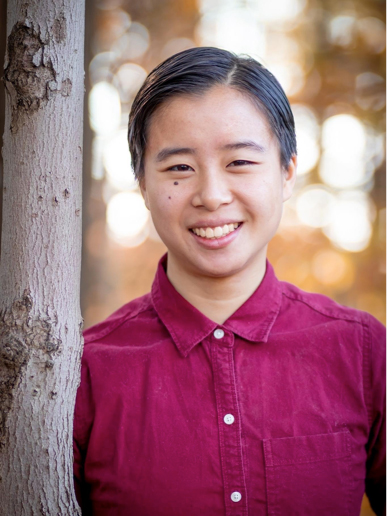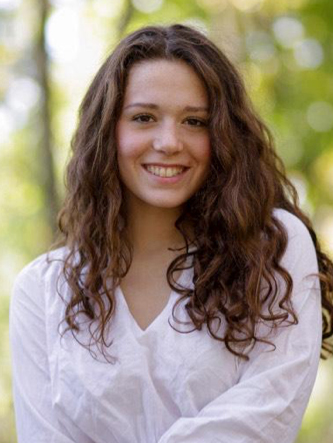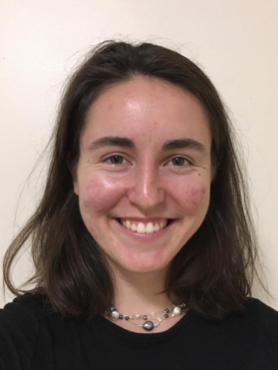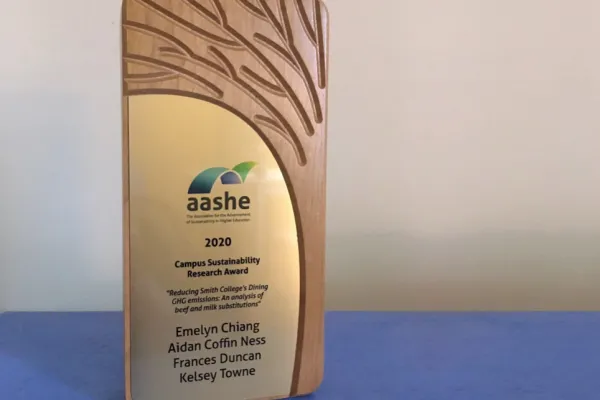‘The Life Cycle of Dining’: Reducing Carbon Emissions
Sustainability
Published December 2, 2020
Commitments to increasing sustainability have been underway on Smith’s campus for years. Now, research conducted by four members of the class of 2020 is highlighting another way in which the college’s food purchases could advance sustainability goals.
Alums Emelyn Chiang, Aidan Coffin Ness, Frances Duncan and Kelsey Towne have received a prestigious Campus Sustainability Award from the Association for the Advancement of Sustainability in Higher Education for their research into reducing the college’s purchases of certain high climate-impact foods.
 The project began as an open-ended senior capstone assignment in a class taught by Alex Barron, assistant professor of environmental science and policy. After considering several topics, including food packaging and transportation, the group ultimately decided to investigate the climate benefits of altering some of the larger purchases made by Dining Services.
The project began as an open-ended senior capstone assignment in a class taught by Alex Barron, assistant professor of environmental science and policy. After considering several topics, including food packaging and transportation, the group ultimately decided to investigate the climate benefits of altering some of the larger purchases made by Dining Services.
While buying locally is of course important, the group learned that “transportation is not a big part of the carbon emissions that come from food,” says Chiang (pictured, top left).
“In general, you can make the biggest impact in reducing greenhouse gas emissions by changing what you’re buying,” confirms Coffin Ness (pictured, second from top, left).
 Working closely with Director of Dining Services Andy Cox, who provided the researchers with complete purchasing data from the previous fiscal year, the group looked at the potential benefits of substituting some of the college’s beef and dairy milk purchases with other, lower-carbon protein sources—such as turkey, tofu and black beans—and dairy alternatives including soy and oat milk.
Working closely with Director of Dining Services Andy Cox, who provided the researchers with complete purchasing data from the previous fiscal year, the group looked at the potential benefits of substituting some of the college’s beef and dairy milk purchases with other, lower-carbon protein sources—such as turkey, tofu and black beans—and dairy alternatives including soy and oat milk.
After running two scenarios, they found that substituting half of the college’s beef purchases would not only eliminate the equivalent of about 1900 metric tons of CO2 emissions, but would also save the college approximately $50,000 per year. Additionally, substituting dairy milk with plant-based alternatives would save about 82 metric tons of CO2 per year but would ultimately be less cost-effective at current prices. “A full substitution might not be likely in some ways due to student food preferences and dietary needs,” Duncan notes (pictured, third from top, left).
 The findings also align with recent initiatives undertaken by Dining Services as part of the Real Food Challenge, which the college committed to in 2016. “We have been working to promote healthy and sustainable food for several years,” says Cox, “and the college is actually well ahead of the goals that we established four years ago.” The Real Food Challenge pushes for increased use of fair, humane and environmentally sustainable products.
The findings also align with recent initiatives undertaken by Dining Services as part of the Real Food Challenge, which the college committed to in 2016. “We have been working to promote healthy and sustainable food for several years,” says Cox, “and the college is actually well ahead of the goals that we established four years ago.” The Real Food Challenge pushes for increased use of fair, humane and environmentally sustainable products.
“I think what our work did was provide a clear framework for a more measurable impact when looking at making these changes,” explains Duncan. “We were informing work that was already ongoing.”
Smithies are no strangers to this award, the submissions for which are externally peer-reviewed: Smith students have been finalists for the AASHE undergraduate research award for the last four years and have won two of the last three.
 “This really highlights the quality of the work our students are doing,” says Barron, adding that meaningful interactions with staff help foster this productive learning environment at Smith. “This award really underscores the power of our approach for teaching sustainability and environmental problem-solving.”
“This really highlights the quality of the work our students are doing,” says Barron, adding that meaningful interactions with staff help foster this productive learning environment at Smith. “This award really underscores the power of our approach for teaching sustainability and environmental problem-solving.”
Plans are in the works to market new, climate-friendly dining options in the spring to see whether some of the shifts suggested in the group’s research are not only feasible, but desired by students.
Chiang, Coffin Ness, Duncan and Towne (pictured, bottom left) will present the key takeaways from their research and formally receive their award in a virtual ceremony to be held Thursday, Dec. 3, at noon EST. The event is free and open to the public.
On January 27, 2021, the group will present their full findings and take questions from an online audience during a free webinar, part of a series produced by the AASHE.
